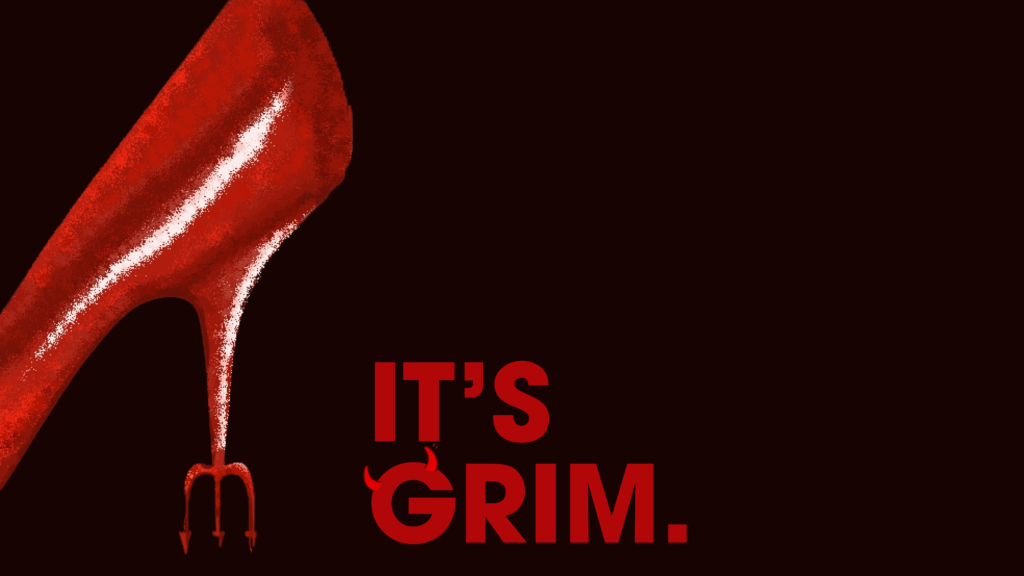Featured image: Ella Bartman
The picture for fashion graduates attempting to enter the industry looks, to say the least, bleak. This is not just the case for graduates. Women of ethnic minorities seeking to pursue a career in fashion also face indefinite difficulties as a result of wider systemic inequalities.
As a soon-to-be fashion graduate myself, I’ve been continuously experiencing the hard-hitting reality of the barriers to entering the industry. I’ve been faced with the similarities between my favourite film, The Devil Wears Prada, in its infamously farcical portrayal of a career in the fashion industry, and real life.
Covid-19 saw failures within the industry, according to Drapers, with fashion students lacking the necessary creative equipment and spaces to complete their studies and projects. Four years later, students are still facing the damaging effects of the pandemic. This has manifested as a strain within the workplace, and an intensification of the struggle for job opportunities among fashion graduates.
Entry-level roles within the fashion spectrum are often low-paid, assisting roles, or unpaid internships. Neri Sillaman’s advice in Harvard Business Review to, “be prepared to start from the bottom”, not only applies to job duties – such as serving coffees – but also to pay.
In the midst of a cost-of-living crisis, with heightened housing prices and electricity bills, fashion students like myself are trying to get by with an insufficient student loan and a (minimum wage) part-time job. It is unfeasible for graduates, who are all in a similar position, to secure jobs that require hefty industry experience, when we simply don’t have the financial ability, or time, to gain the often-unpaid experience crucial to get these jobs.
How are we supposed to juggle finishing a degree, working part-time so that we’re able to afford our food shop, and on top of this working for free in industry, to gain the experience required to land a job in fashion?
On top of the detrimental effects of the pandemic on students today, institutionalised inequalities create further struggles for fashion graduates entering the industry, in particular people from ethnic minorities, and women.
According to The Vogue Business ‘Success in Fashion’ survey, June 2023: 52% of people of colour feel their race has had a negative impact on their careers in fashion, in comparison with just 6% of white respondents. This exposes the detrimental effects of this deeply entrenched racism, and the constrictive reality of entering the industry.
People belonging to an ethnic minority represent 18% of the UK population, so how on earth is the industry allowing for these systemic issues to continue to survive and prevail?
When looking at the racial inequalities which hinder recent graduates from entering the industry, we should look to the top of the fashion spectrum, where one hopes to eventually arrive.
The British Fashion Council published research finding that in 2022, just 5% of senior roles in fashion companies were held by people of ethnic minority backgrounds. These findings introduce an intersectional perspective, as sexism comes into play, hardening the barriers for entry into industry. The majority of leadership roles remain dominated by men.
Gender inequality and sexism in the industry stand out as two major interceptions for those entering the industry, as well as those attempting to work their way up the management ladder.
The question that arises now is, how do we change this?
While the statistics above indicate the prevalence of racial inequalities in the fashion industry, this discrimination does not go unchallenged. Platforms seeking to tear down these barriers have been created across the UK.
One of the most influential of these organisations is Black In Fashion UK, a northern-based platform dedicated to connecting people of colour with opportunities within the fashion industry. The group takes to social media to post weekly/monthly jobs within the fashion realm from the North, Midlands and even London.
In addition, the organisation have appeared at events including SwitchMCR, working to showcase creatives through talks discussing key topics dominating the fashion industry. Black In Fashion UK are making moves to overcome these inequalities, and the presence of these platforms are a credit to the industry.
Black In Fashion’s CEO Orlando Martins highlighted his own experience within the industry, stating that he has often felt like, “the only person of colour in the room”. His initiatives aim to address the pipeline, by developing entry and mid-management talent pipelines to “fuel the boards of tomorrow”. It is by investing in those who are underrepresented in the workplace that we can assist in accelerating their path to success.
Why brush off such initiatives which are guided by such clear aims, and led by those directly affected by these issues? If Orlando Martins has successfully carried out these practices in his organisation, why are brands not following suit, or utilising these resources?
The sad reality is that these racial and gender inequalities have a strong impact on those attempting to enter the industry. It’s clear the graduates of today are already struggling to balance finishing degrees and gaining experience, all while remaining on our student budgets.
The solution points to the industry itself: unpaid work needs to be eliminated from the industry and no longer disguised as ‘assisting’. These entry and mid-management talent pipelines must be implemented in fashion businesses, and they should target the issues that impact the future workers of the fashion world. The industry must step up.






Leave a reply